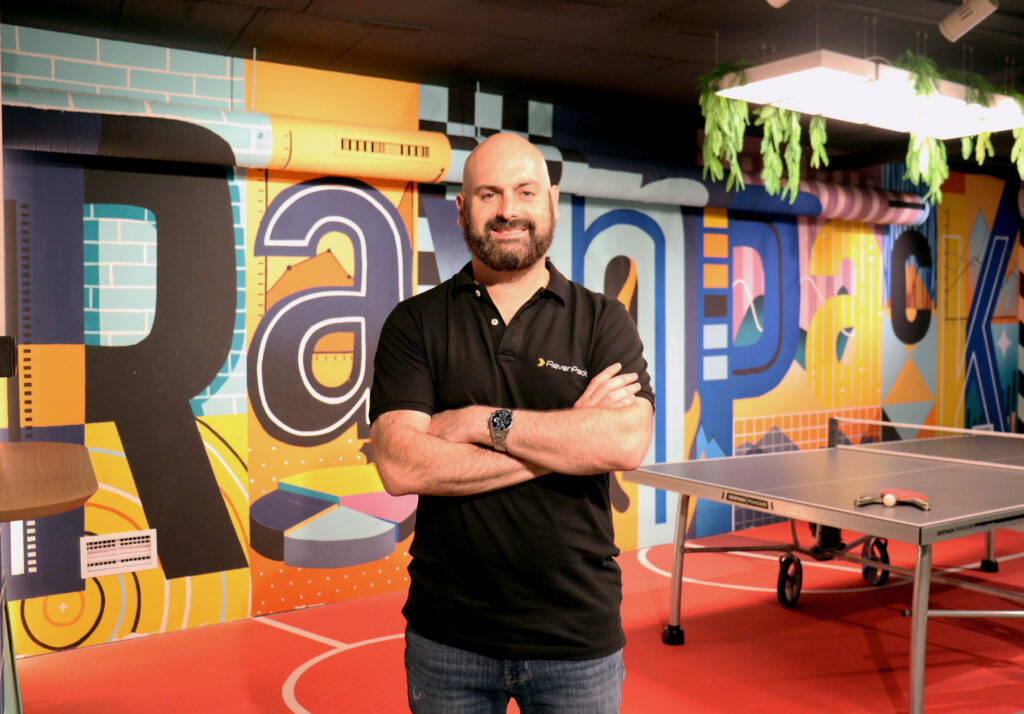Artificial Intelligence
1Mby1M Udemy Courses with Sramana Mitra: Domain Knowledge

At 1Mby1M, we believe in learning from case studies of successful entrepreneurs. These case studies involve discussions on opportunities and challenges specific to the domain such as Generative AI, E-Commerce, Digital Health, Cyber Security, and FinTech.
>>>Man and Superman: India’s Prospects in the Age of AI (Part 1)

(Sramana Mitra discusses India’s Prospects in the Age of AI at the Ramakrishna Mission Institute of Culture in Kolkata, India on November 3, 2023)
It’s a real pleasure for me to return to this forum after four years. Thank you very much, Maharaj, for having me again and again. History is evolving rather quickly at the moment.
>>>Featured Videos
Can 1M/1M Help Me Raise Money?
How Does 1M/1M Democratize Entrepreneurship Education?
How Does 1M/1M Democratize Management Consulting?
When Is The Right Time To Join 1M/1M?
Can 1M/1M Help Me With Business Development?
Can 1M/1M Help Me With Market Sizing?
Can 1M/1M Help Me Validate My Product?
Will I Have Private 1-on-1 Sessions In 1M/1M?
How Does 1M/1M Help Entrepreneurs Connect With Silicon Valley?
Mentoring or Consulting?
Why Does 1M/1M Charge $1000 a Year?
Why Does 1M/1M Partner With Local Organizations?
Why Don\’t Mentoring Networks Work?
Why Is It Important To Study With 1M/1M Now?
Dan Stewart Story
Vikrant Mathur Story
Building an AI Unicorn: Glean CEO Arvind Jain (Part 1)

Arvind is an experienced entrepreneur who was able to raise $15M on a concept to solve a big problem. Since then, Glean has been abundantly funded, generates abundant revenue and has become a legitimate Unicorn.
Sramana Mitra: Let’s start at the very beginning of your journey. Where are you from? Where were you born and raised? What kind of background?
>>>Bootstrapping an AI-Powered Security Startup to $10M+ in Revenue: Osprey Security CEO Rohit Anabheri (Part 1)

Rohit has effectively used the Bootstrapping Using Services technique to bootstrap an AI-Powered Enterprise Security venture to mid eight figure revenues. In that process, he has turned down offers for Venture Capital. I believe, in Artificial Intelligence and Machine Learning, currently, Bootstrapping Using Services is one of the best ways to find problems to solve and build successful companies.
>>>1Mby1M Udemy Courses with Sramana Mitra: Regional

At 1Mby1M, we welcome entrepreneurs from all over the world and our courses include case studies of entrepreneurs across different regions.
>>>Startup Ecosystem in Kolkata: New Technologies Bring New Opportunities

Join us on Thursday, July 20, at 8:30 p.m. IST / 8 a.m. PDT for a special roundtable program: Brainstorming on Eastern India Startup Development. Come share your perspective, sign up to Speak and we will accommodate as many as possible with a few minutes to talk, register here. In case you missed it, you can listen to the recording of this roundtable here.
I am sure many entrepreneurs are chomping at the bits to get a Generative AI startup going.
And, you are reading about hundreds of millions of dollars in VC funding being splashed on this quest.
Well, I want you to think differently.
>>>Building a Generative AI Startup to $10M+ with a Virtual Team: Chris Lu, CEO of Copy.ai (Part 1)

Chris and Paul have built a front-end to Open AI and a significant business with over $10M in revenue. Now, they’re broadening their product capability to business workflows. We also discuss ideas and opportunities for new entrepreneurs.
Sramana Mitra: Let’s start at the very beginning of your journey. Where are you from? Where were you born and raised? What kind of background?
>>>Extending Product Roadmaps with Generative AI: Acrolinx CEO Volker Smid (Part 1)

In this conversation, Volker discusses how his company is extending its product line with Generative AI, and also, very specific new startup ideas leveraging the capabilities of Generative AI.
Sramana Mitra: Let’s start at the very beginning of your journey. Where are you from? Where were you born and raised? What kind of background?
>>>Capital Efficient Strategy for Generative AI Startups: Aisera CEO Muddu Sudhakar (Part 1)

Muddu Sudhakar and I share the perspective that the real opportunity for Generative AI startups is not in building platforms but in piggybacking on other platforms.
This conversation deep dives into the subject with real world examples and explores all the nuances entrepreneurs need to consider.
>>>Capital Efficient Strategy for Generative AI Startups: RavenPack CEO Armando Gonzalez (Part 1)

Armando has built an AI company over 20 years, deeply focusing on Finance and Trading.
He discusses his journey, and also reflects on how generative AI startups can be built in a capital-efficient manner. Great conversation!
Sramana Mitra: Let’s start at the very beginning of your story. Where are you from? Where were you born and raised? What kind of background?
>>>New Generative AI Startup Course and Udemy Coupons for May

As a part of our aim to democratize entrepreneurship education at scale globally, we have packaged our proven 1Mby1M methodology for building technology startups into short courses on Udemy.
In addition to offering you up to 85% off the following Udemy courses this month, we are introducing our new Generative AI course, Generative AI Startup Strategy Case Studies. Through this course, we will continue to add our most informative and inspirational case studies of startups and entrepreneurs who have successfully navigated the Generative AI space.
These coupons will expire on May 31, 2023, so enroll today!
Bootstrapping:
Bootstrap First, Raise Money Later with Sramana Mitra: TRY1MBY1MMAY2023BTS
